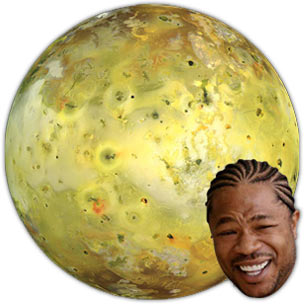I remember when I first learned the Japanese word for “name” — which is namae, pronounced nah-mah-eh — I noticed the similarity between the two words and wondered if the Japanese could have borrowed theirs from some Western language. It turns out that this isn’t the case, and the parallel between the two is purely accidental, a surprisingly common occurrence known as a “false cognitive” in linguistics. In Japanese you thank someone by saying arigato, which is very similar to the Portuguese word obrigado, but this is another example of unrelated words accidentally having similar pronunciations. Or the word so, which by an amazing coincidence corresponds perfectly with the word “so” in English as in so desu ka? “is that so?” Or the way the Japanese word for “road” is doro, essentially the same word with the syllables reversed. Another minor coincidence I found: the word for sulfur in Japanese is iwo, yes as in the famous World War II battleground Iwo Jima, which literally means “Sulfur Island.” Guess which body in the solar system is famous for its sulfur volcanoes? Jupiter’s moon Io, pronounced in Japanese (and Greek) exactly like the word for sulfur.
For perfectionists: I know that “Iwo” is meaninglessly rendered in proper Romanized Japanese. It’s an old construct from a previous age that’s been trapped in its current form due to the famous name of Iwo Jima. The word for sulfur is 硫黄 (いおう), which would be iou if Romanized correctly. Which is funny since the name for the moon of Jupiter is the same.

“Yo Dawg, I heard you like sulfur, so I put some 硫黄 in your Io and now you have sulfur volcanoes.”















